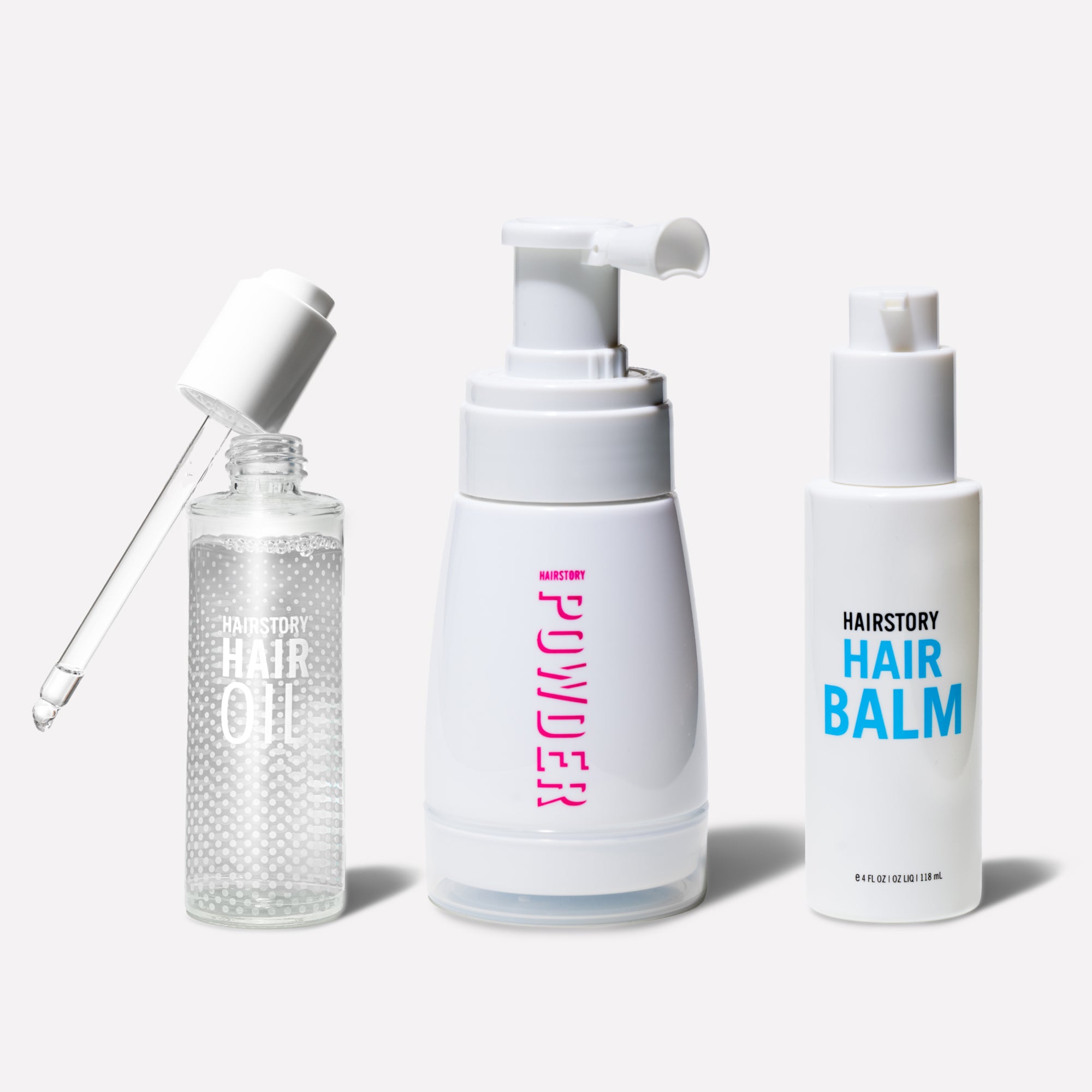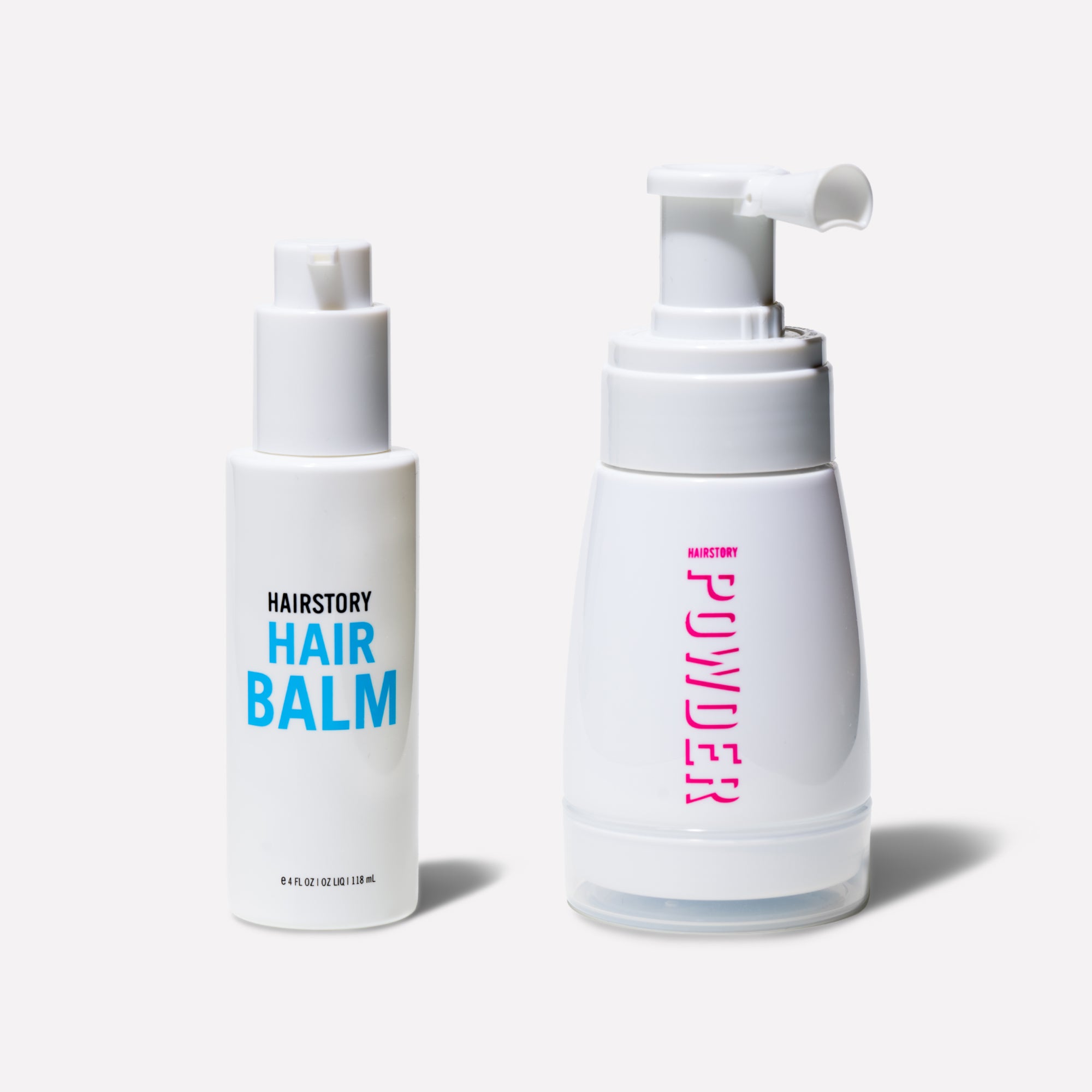Allergic reactions to personal care products are common. In fact, up to 20% of Americans experience an allergic skin reaction during their lives. Doctors call this contact dermatitis.
The immune system overreacts to chemicals considered harmless to most people, and hair cleansing products are, in fact, a common cause of contact dermatitis. An allergic reaction to shampoo can leave you with an itchy scalp and hair loss. Even with regular use without incident, a reaction is still possible.
WHAT MIGHT YOU BE ALLERGIC TO?
Shampoos are typically formulated with up to 30 ingredients, including surfactants which aid in cleansing and lathering, conditioners, active ingredients that soften the hair and scalp, additives to stabilize the formula and modify its effects, and fragrance.
Choosing haircare products with fewer ingredients is one way to reduce the risk—or at least narrow the possibilities and hone in on the culprit. Establishing a gentle haircare routine can help eliminate chemical irritants and boost hair growth.
According to one study, fragrance is the most commonly present allergen. The next most common is the cleansing agent cocamidopropyl betaine (CAPB), followed by preservatives with antifungal and antibacterial effects (methylchloroisothiazolinone/methylisothiazolinone or MCI/MI, dimethylol dimethyl [DMDM] hydantoin, diazolidinyl urea, quaternium-15) and finally preservatives (imidazolidinyl urea, Iodopropynyl butyl carbamate or IPBC, methyldibromo glutaronitrile/phenoxyethanol or MDBGN/PE).
Additionally, propylene glycol, a chemical solvent and emulsifying agent, the antioxidant vitamin E (tocopherol), and benzophenones, used to absorb UV light, are all potential allergens. These allergens can create shampoo allergy symptoms in people, leading to skin irritation and irritant dermatitis.
WHAT ARE THE SYMPTOMS OF AN ALLERGIC REACTION TO SHAMPOO?
Your skin will be the first to tell you that it has come in contact with an allergen. While symptoms usually appear within 48 hours, abnormal skin conditions can take up to a week after exposure to show. People have different allergic reactions to shampoo, but the most common adverse reactions take place in one or more areas of the eyelids, face, neck, scalp or upper back. Additional symptoms include:
- Red, burning or itchy skin on the affected areas, specifically the scalp
- Scaly patches that develop, especially on the scalp
- Oozing blisters that appear on the scalp after shampooing
- Swelling of the scalp or face following use of shampoo
- Hives on the affected areas of the scalp
- Sun sensitivity on the scalp that begins after using the shampoo
- Rashes can also slow your hair growth rate, which can be frustrating when you don’t know why your hair isn’t growing.

WHAT DO I DO IF I HAVE AN ALLERGIC REACTION?
Call your doctor to set up an appointment. A thorough physical exam focused on questions about your symptoms may provide your doctor with everything they need to diagnose your condition. Your doctor may suggest that you consult an allergist for a patch test to further narrow down your allergy.
What is a patch allergy test?
A patch test involves applying small samples of potential irritants onto your back and monitoring the areas for any effects such as a rash. If you are experiencing any shampoo allergy symptoms, this test can help identify the specific cause.
Patch testing for a shampoo allergy isn’t easy. Sensitive skin tends to have a stronger skin reaction leading to more severe allergy symptoms. Several allergens in shampoo have not yet been included in current lists of suspects and may result in testing with the shampoo itself rather than its individual ingredients.
If you know that you are especially chemically sensitive, this is something your colorist could do to gauge the effects of color chemicals on your system. Many permanent and some semi-permanent dyes contain paraphenylenediamine (PPD), which is the most common cause of allergic reactions. Milder, alternative options include temporary color and henna.
Keep track of your symptoms to help with a diagnosis
Take note of these details:
- What were you doing in the days and hours before your outbreak?
- Which product(s) were you using before the reaction occurred?
- How much and how often were you using the product(s)?
- Where on your body did you use the product(s)?
- What symptoms do or did you have?
- Have you experienced skin reactions before?
- What treatments, if any, have you undergone to address previous reactions?
What are the treatments for a shampoo allergic reaction?
Once you know what you’re allergic to, be thorough in your efforts to avoid it. If you use shampoo to wash hair daily, decreasing the frequency of use should be your first action.
- After contact, wash thoroughly with hypoallergenic soap and water as soon as possible, and wash your hands before touching any other part of your body.
- Remove and wash clothes or jewelry that the irritant may have touched.
- Treat mild reactions with aloe vera, calamine lotion or antihistamine- or cortisone-based ointments.
- Prescription medications are available for more severe reactions if needed.
PREVENTING FUTURE ALLERGIC REACTIONS TO SHAMPOOS
If you know that your skin is especially sensitive historically, avoid synthetic fragrance or search for fragrance-free products. Avoiding a specific chemical then can be impossible if you don’t know it’s there. To be completely risk-free, choose products that are labeled fragrance-free. Shampoos contain a wide variety of potential allergens, and for people with sensitive skin or who are allergic to multiple ingredients in a formula, finding a hypoallergenic shampoo isn’t easy.
However, there is hope in New Wash—our cleansing cream that is about as different from shampoo as one can get.
- New Wash contains no detergent whatsoever. This eliminates potential allergies and surfactants.
- The preservative system used for New Wash is completely natural.
- The New Wash fragrance recipe is composed primarily of essential oils and extracts, and every ingredient is listed on the packaging. That way you know this fragrance trade secret is safe, and so is your scalp.
Hairstory New Wash
shop the collection
View More Information


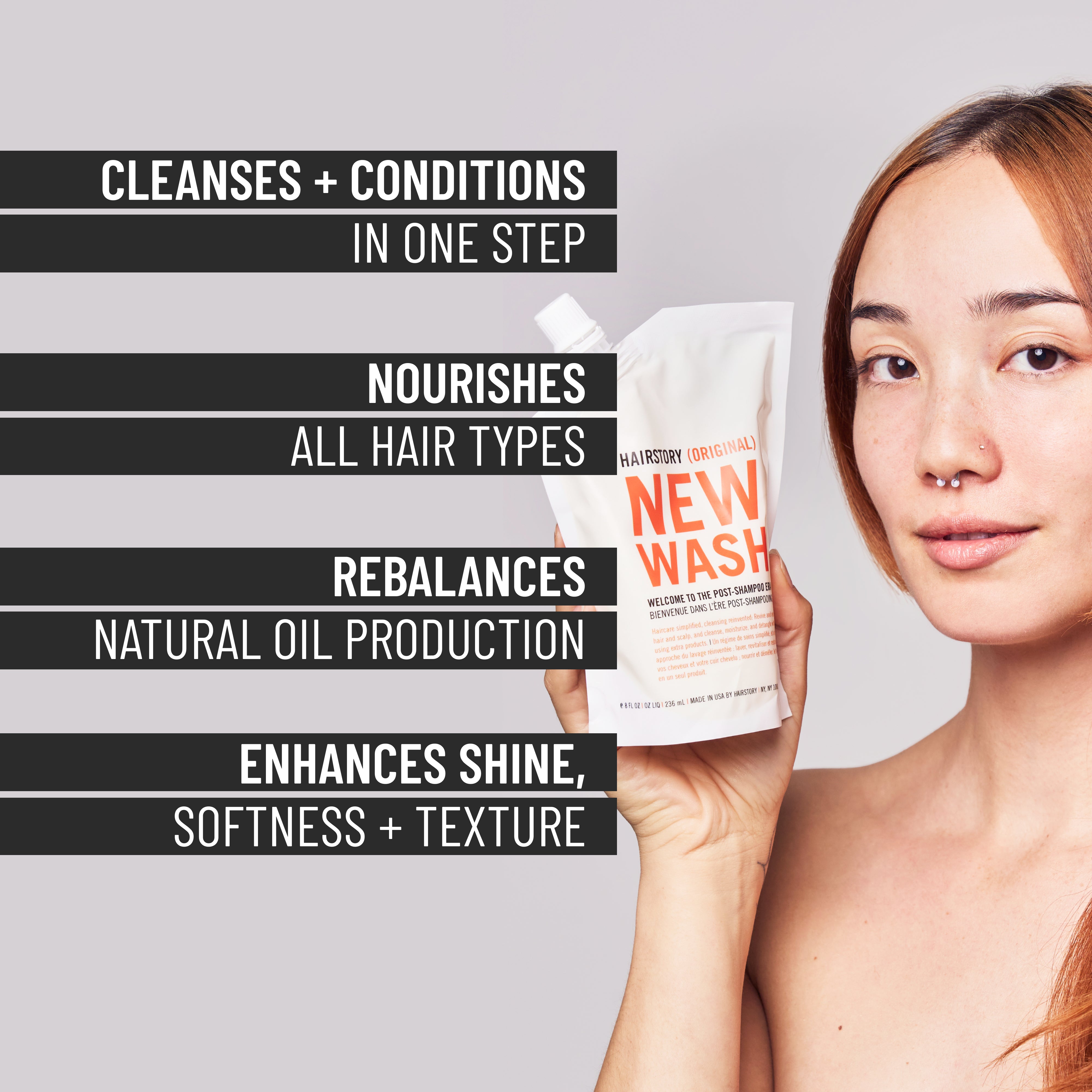
New Wash Original
View More Information


Healthiest Hair Method
View More Information


Richest Hair Method
View More Information


Clarifying Hair Method
View More Information


Pre-Wash
View More Information


New Wash Original Starter Set
View More Information


New Wash Rich Starter Set
View More Information


New Wash Deep Starter Set
View More Information


New Wash Original Trial Kit
View More Information


New Wash Rich
View More Information


New Wash Deep
View More Information

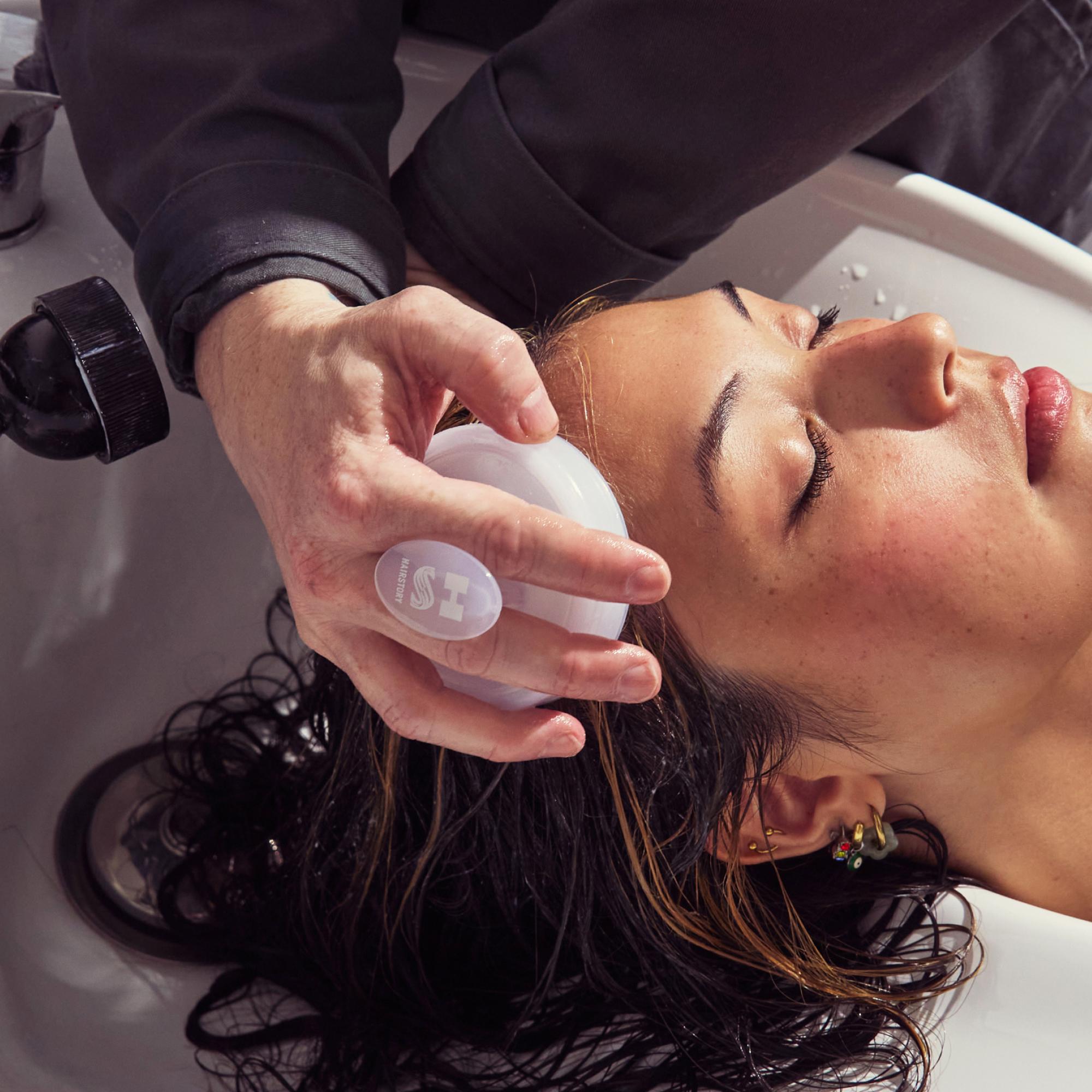
Massaging Scalp Brush
View More Information


The New Wash Method for All Hair Types
View More Information


The New Wash Method for Dry Hair
View More Information


The New Wash Method for Oily Hair
View More Information


New Wash Original and Purple Boost Duo
View More Information


New Wash Rich and Purple Boost Duo
View More Information


New Wash Original and Blue Boost Duo
View More Information


New Wash Original and Red Boost Duo
View More Information


New Wash Rich and Red Boost Duo
View More Information


New Wash Rich and Blue Boost Duo
View More Information


Anti-Brass Moisture Color Boost Set
View More Information


Anti-Brass Color Boost Set
View More Information


Beach Waves Set
View More Information


Care and Texture Set
View More Information


Beach Waves Moisture Set
View More Information


Moisture Ultra Boost Set
View More Information


Moisture and Shine Restoration Set
View More Information


Frizz Control Set
View More Information


Moisture and Volume Set
View More Information


Moisture Boost Set
View More Information


Frizz Control Moisture Set
View More Information


Vibrant Red Color Boost Set
View More Information


Shine, Gloss and Moisture Color Boost Set
View More Information


Vibrant Red Moisture Color Boost Set
View More Information


Volumizing Set
View More Information


Shine Restoration Set
View More Information



New Wash Mini
View More Information
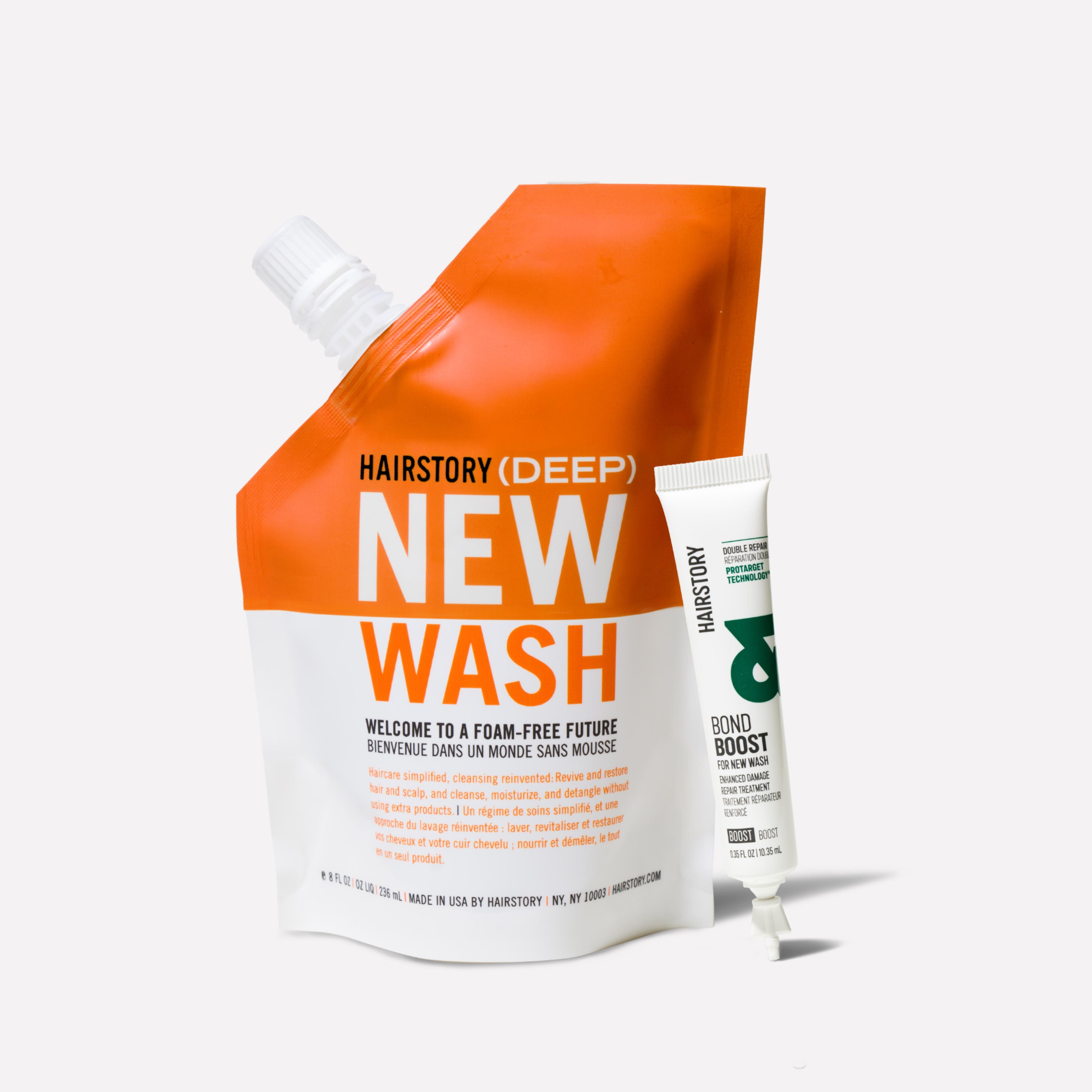

Bond Boost and New Wash Deep Duo

